Last month I wrote about 12 Unpublished Novels We (the royal we) Wish We Could Read. But one (the royal one) must be careful what one wishes for, because certain unpublished novels might be unpublished for a reason. This got me to thinkin'—pontificatin' if you will—about novels that might have been better off had they never seen the dark innards of a printing press. I'm not talking about books I dislike, per se; no one really wants to read a list of my least favorite books. This column needed more of a hook than that. A hook that would start arguments provoke meaningful discussion. And thankfully, Savage Steve Holland provided one, all the way back in 1985.
Full Disclosure: I haven't read all of these books, nor have any of these authors killed a member of my family, so this isn't an ax grinding session. In some cases I'm just playing devil's advocate, even though I come off more John Milton than Kevin Lomax. To give you a frame of reference, I took three things into account when I wrote this list: 1. Was the work completed?, 2. Did the author want it published?, and 3. What was the critical consensus? So everyone put their arguin' caps on, and get ready for 10 Posthumous Novels That Should Have Never Been Published.
![]() 'The Pale King' by David Foster Wallace
'The Pale King' by David Foster Wallace
What we know: At the time of his suicide in 2008, Wallace had been working on what he referred to as The Long Thing for over ten years. Just a year prior, he had estimated he was only one third of the way finished. The WIP was found by his wife, along with hundreds of pages of additional notes and revisions detailing, in part, the story of "an evil group within the IRS [that] is trying to steal the secrets of an agent who is particularly gifted at maintaining a heightened state of concentration." The over 1000 pages were compiled and whittled down by Wallace's longtime editor, Michael Pietsch.[1]
Why it should have never been published: The Pale King isn't a novel. It is a jumble of unfinished ideas and narrative starts and fits. And although it has been described as "breathtakingly brilliant," it has also been described as "stupefying dull" (by the same person, no less). This seems to be the consensus. It has also been suggested that the version published is more a product of Pietsch than Wallace. Had Wallace finished the novel, it would have been a vastly different work.
![]() 'The Neon Bible' by John Kennedy Toole
'The Neon Bible' by John Kennedy Toole
What we know: Toole's first novel, which he wrote in 1954 at the tender age of sixteen, would not see publication for another thirty-five years. Eight years after A Confederacy of Dunces won the Pulitzer and became a best-seller, and a full twenty years after the author's suicide. The novel is about a young boy growing up in rural Mississippi dealing with the social and religious mores of the time.
Why it should have never been published: In the author's own words, "the book, of course, was bad," and the quality and style of the writing bore little resemblance to Dunces. But after the success of one posthumous masterpiece, the family and publishers got greedy. Lightning did not strike twice. [2]
![]() 'The Salmon of Doubt' by Douglas Adams
'The Salmon of Doubt' by Douglas Adams
What we know: Although he toyed with the idea of turning it into a sixth Hitchhiker's installment, Salmon was originally conceived as a Dirk Gently novel. The published version was culled from a number of different drafts, and has something to do with half a missing cat and "a distant future dominated by estate agents and heavily armed kangaroos." [3]
Why it should have never been published: Salmon truly is a work in progress, consisting of only 10 chapters. Were Adams still alive, this version would likely have been scrapped and cannibalized for his more popular series. Salmon is for Adams completists only. Reading the unfinished work of your favorite author is the literary equivalent of hearing your girlfriend fart for the first time. It is what it is, and there's no shoving that thing back in there.
![]() 'And the Hippos Were Boiled in Their Tanks' by William S. Burroughs and Jack Kerouac
'And the Hippos Were Boiled in Their Tanks' by William S. Burroughs and Jack Kerouac
What we know: A mystery novel based on the murder of David Kammerer by the object of his unwanted obsession, Lucien Carr, in a drunken knife fight. As the story goes, Carr confessed the crime to both authors, who said nothing. Apparently that wasn't the desired response, so Carr turned himself in to the police, which resulted in Billy and Jack being charged as accessories after the fact.
Why it should have never been published: Written years before either author hit their stride (i.e. became famous), Burroughs himself did not deem the collaboration worthy of publication, and was quoted as saying, "It wasn't sensational enough to make it . . . nor was it well-written or interesting enough to make it [from] a purely literary point of view." That didn't stop Kerouac and others from wanting to go ahead, but after ownership of the work was settled by a lawsuit brought on by Burroughs, they would have to wait until both he and Carr kicked the bucket. According to the New York Times, the book was "flimsy" "repetitious" and "flat-footed," and its only redeeming quality was "its gruesomely comic title". [4]
![]() 'The Original of Laura' by Vladimir Nabokov
'The Original of Laura' by Vladimir Nabokov
What we know: Published more than thirty years after Nabokov's death, Laura is about a man obsessed with death who decides to erase himself from existence via meditation. An awesome concept if I ever heard one.
Why it should have never been published: The unfinished work consisted of only 30 pages worth of writing, and Nabokov was adamant that any works left incomplete at the time of his death were to be destroyed. Of course this final request was promptly ignored by his family, because, KA-CHING! So they put it in a Swiss vault to appreciate. When it was finally published, Nabokov's son offered this line of porcine poop: he said "his 'father’s shade,' would not 'have opposed the release of Laura once Laura had survived the hum of time this long.'" Whatever that means. Young Dimitri was properly admonished by the critics, who regarded the quality of the work as not fit for publication.
![]() Almost any posthumous poetry by Charles Bukowski
Almost any posthumous poetry by Charles Bukowski
What we know: From Bold Monkey:
In a letter to Stephen Kessler in December 1984 Charles Bukowski writes, “John Martin has quite a buildup of unpublished material from a couple of decades. There’s a very good chance, if the world is still here, that John Matin can publish a new Bukowski book each year for a good 5 or 6 or 7 years, maybe longer...
He wasn't kidding. In the decade leading up to his death, Bukowski published approximately 6 books of poetry. In the decade or so after, at least thirteen collections were published.
Why they should have never been published: Because posterity is a fickle bitch-goddess. For the most part their quality has declined, and the more recent offering really seem to scrape the bottom of the barrel. I mean, it's not like the guy had anything new to say. It's basically all: glug glug, boo-hoo, scribble scribble. It gets old after a while. We don't want to remember Bukowski as a washed-up, drunken shadow of his former self; we want to remember him as a young, vital drunk with plenty of fresh things to say about being a drunk.
![]() 'Juneteenth' by Ralph Ellison
'Juneteenth' by Ralph Ellison
What we know: Ellison's Invisible Man was published in 1952, and we all know how that turned out. The debut novel continues to grace many a college syllabus to this day. But when it came time to write his second novel... we'll, let's just say he was trying to get it done before his funeral in 1994, but he didn't make his deadline. He Harper Lee'd that shit.
Why it should have never been published: At the time of his death, Ellison had written over 2,000 pages of his follow up. Those two large were edited by John "Scissor Hands" Callahan, Ellison's biographer and longtime friend (this is beginning to sound familiar), down to a manageable 368 pages. A 1000+ page version titled Three Days Before The Shooting was released some ten years later. Neither of these versions constitutes a completed work or fulfills the promise of Invisible Man.
![]() 'If God Were Alive Today' by Kurt Vonnegut
'If God Were Alive Today' by Kurt Vonnegut
What we know: Vonnegut's output as a novelist slowed as he got older. Hocus Pocus came out in 1990, and it would be seven more years until Timequake was published. After that, he effectively retired. He had been working on If God Were Alive Today, a story about a college professor who fancies himself "the stand-up comedian on Doomsday," but somewhere along the way he threw in the towel. It was published incomplete as part of We Are What We Pretend To Be in 2012.
Why it should have never been published: This quote: "I've given up on it... It won't happen... The Army kept me on because I could type, so I was typing other people's discharges and stuff. And my feeling was, 'Please, I've done everything I was supposed to do. Can I go home now?' That's what I feel right now. I've written books. Lots of them. Please, I've done everything I'm supposed to do. Can I go home now?" As sad as it is to say, If God Were Alive Today is an old dog with no teeth gone on one hunt too many.
![]() 'The Dark Tower' by C.S. Lewis:
'The Dark Tower' by C.S. Lewis:
What we know: Allegedly rescued from a bonfire by Walter Hooper, Lewis' literary executor, this incomplete sequel to Out of the Silent Planet was first published in 1977, fourteen years after the author's death. Elwin Ransom returns, and the story involves an invention that allows people to see through time and observe alien worlds. A group of scholars observe a world where automatons build a replica of the new Cambridge University Library under the tyranny of a man with a unicorn horn growing out of his head.
Why it should have never been published: The authenticity of The Dark Tower has been called into question numerous times, and many consider the work as a forgery perpetrated by Hooper. But regardless of who wrote it, the story contains large narrative gaps and ends quite abruptly. It also doesn't fit in with the rest of Lewis' Space Trilogy. [5]
![]() 'The Sea Is My Brother: The Lost Novel' by Jack Kerouac
'The Sea Is My Brother: The Lost Novel' by Jack Kerouac
What we know: Written in 1942, Kerouac's first attempt at the Great American Novel is based on his 8 days as a US Merchant Marine during WWII. It was eventually published as his "lost first novel" in 2011.
Why it should have never been published: Kerouac didn't think much of the novel and never even bothered to shop it around. He allegedly referred to it as "a crock of shit". This coming from the man who was fighting for And the Hippos... to be published. When it was finally released, the critical consensus was that it showcased Kerouac's humble beginnings as a writer, which is a nice way of saying it sucked.
What do you think? Should unpublished works be published posthumously? Even if they are incomplete? Even if it goes against the author's wishes? Granted, there are some great posthumous novels out there, but what about those listed above?
[1] "The Unfinished" by D.T. Max
[2] Ignatius Rising: The Life of John Kennedy Toole by Rene Pol Nevils and Deborah George Hardy
[3] The Salmon of Doubt, Wikipedia
[4] And the Hippos..., Wikipedia
[5] The Dark Tower, Wikipedia

About the author
Joshua Chaplinsky is the Managing Editor of LitReactor. He is the author of The Paradox Twins (CLASH Books), the story collection Whispers in the Ear of A Dreaming Ape, and the parody Kanye West—Reanimator. His short fiction has been published by Vice, Vol. 1 Brooklyn, Thuglit, Severed Press, Perpetual Motion Machine Publishing, Broken River Books, and more. Follow him on Twitter and Instagram at @jaceycockrobin. More info at joshuachaplinsky.com and unravelingtheparadox.com.
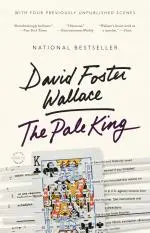 'The Pale King' by David Foster Wallace
'The Pale King' by David Foster Wallace
 'The Neon Bible' by John Kennedy Toole
'The Neon Bible' by John Kennedy Toole
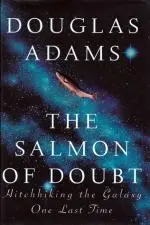 'The Salmon of Doubt' by Douglas Adams
'The Salmon of Doubt' by Douglas Adams
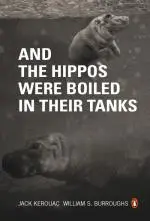
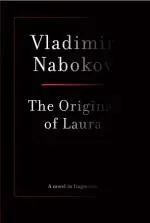 'The Original of Laura' by Vladimir Nabokov
'The Original of Laura' by Vladimir Nabokov
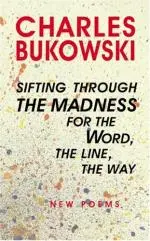 Almost any posthumous poetry by Charles Bukowski
Almost any posthumous poetry by Charles Bukowski
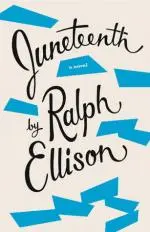 'Juneteenth' by Ralph Ellison
'Juneteenth' by Ralph Ellison
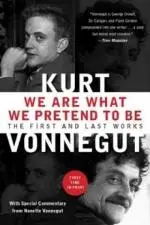 'If God Were Alive Today' by Kurt Vonnegut
'If God Were Alive Today' by Kurt Vonnegut
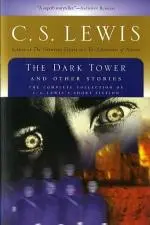 'The Dark Tower' by C.S. Lewis:
'The Dark Tower' by C.S. Lewis:
 'The Sea Is My Brother: The Lost Novel' by Jack Kerouac
'The Sea Is My Brother: The Lost Novel' by Jack Kerouac








